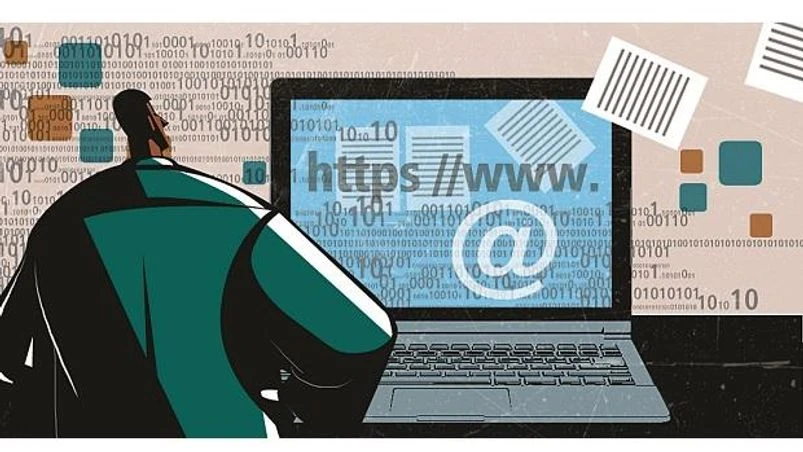 What is your 'right to be forgotten'?
What is your 'right to be forgotten'?
After the West, nuanced debates on the 'right to be forgotten' by the internet have started in India too. So far, they are limited to the corridors of courts. Find out the developments around it
)
Illustration: Ajay Mohanty
In July this year, reality TV star Ashutosh Kaushik -- who won the Bigg Boss season in 2008 and MTV Roadies 5.0 -- moved the high court of Delhi seeking removal of certain videos and photographs from the internet citing “right to be forgotten.” Kaushik claimed that almost a decade-old incident of drunk driving was still haunting him. And so was an incident of brawl.
And just a few days later, in August, a Bengali actress approached the same court with almost a similar request. She too wanted her past expunged from the virtual platform, which the woman claimed was hurting her reputation now. In her case, the court observed that “right to privacy includes the right to be forgotten and to be left alone.”
Videos or photos of juvenile brushes with the law, imprudent social media posts made years ago or a glimpse from an uncomfortable moment may be itched in the virtual memory forever, even if you have long forgotten them. They come across as a shock to many when they google their name. And for the rest of the lot, they are uncomfortable secrets which are out in the open.
And in both cases, people just want their past to be erased. They simply want to be forgotten by the internet.
Internet users in Europe can make use of their right to be forgotten to get any uncomfortable data removed. The right to be forgotten, also known as the right to erasure, is the common name for a right that was first established in the European Union in 2014 after a ruling by the Court of Justice of the European Union.
Also Read
Under this right, an individual can request search engines like Google to delete personal information that appear under searches for their name. While in India, due to the absence of a law on it, people knock at the court’s door with their grievances.
But the right to be forgotten has now found mention in a law-in-waiting. Clause 20 of Personal Data Protection (PDP) Bill, 2019 provides a mechanism to implement this right. So all such cases will come under the purview of this law once it is passed. A Joint Parliamentary Committee (JPC) is likely to submit its report on the bill this week.
But all this does not mean that anyone can exercise this right to get any information about himself removed. It is not an absolute right and applies in limited situations.
The General Data Protection Regulation (GDPR) adopted by the European Union in 2018 lays out the circumstances under which the right applies. Each request is evaluated individually for its merits.
The GDPR provides protection for personal information that is incorrect, misleading, excessive, or irrelevant. The right to have personal information removed can be exercised if such data is no longer necessary for the purpose an organisation originally collected it or if it processed the data unlawfully. In cases where the individual has
An individual can also request removal of data when they no longer consent to processing it. However, a search engine’s right to process someone’s data might override their right to be forgotten.
Organisations don’t have an obligation to delete a person’s data if such data is needed to exercise the right to freedom of expression or if there is a legal obligation to keep it. The data is not required to be erased if it is necessary in the public interest, scientific or historical research purposes or statistical purposes.
So, once it is passed, a law on the right to be forgotten will go a long way in addressing genuine cases, where people want some uncomfortable piece of information removed from the internet. They will not need to take rounds of courts for this.
Watch video
More From This Section
Don't miss the most important news and views of the day. Get them on our Telegram channel
First Published: Dec 10 2021 | 8:45 AM IST

